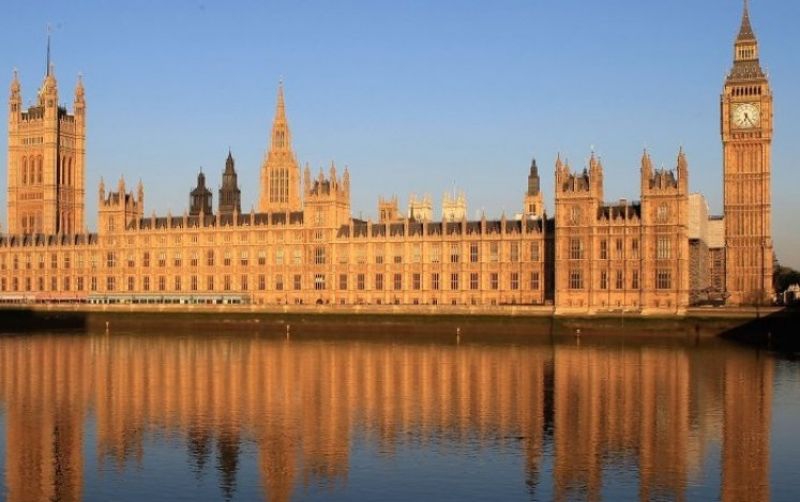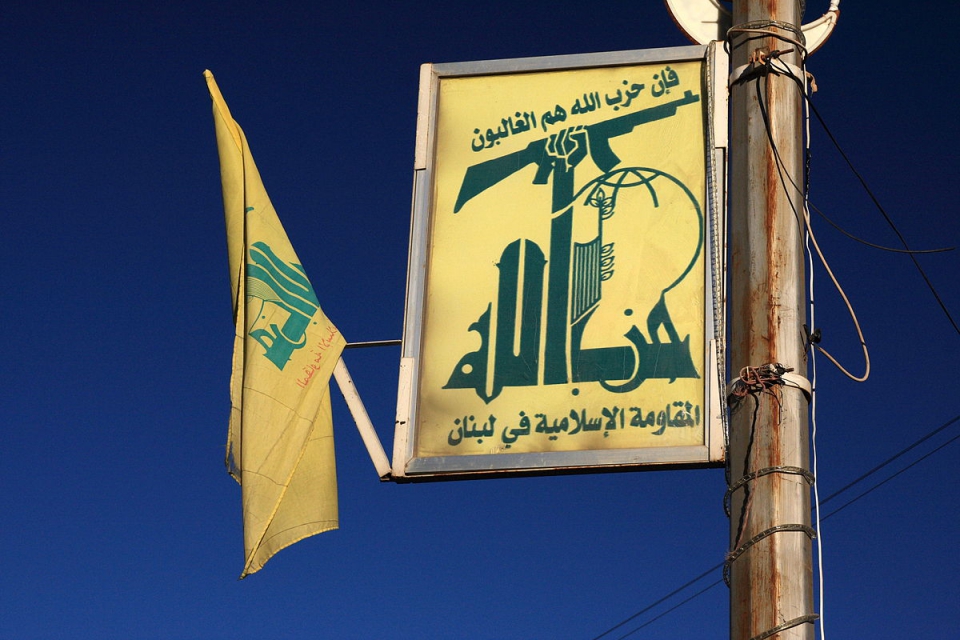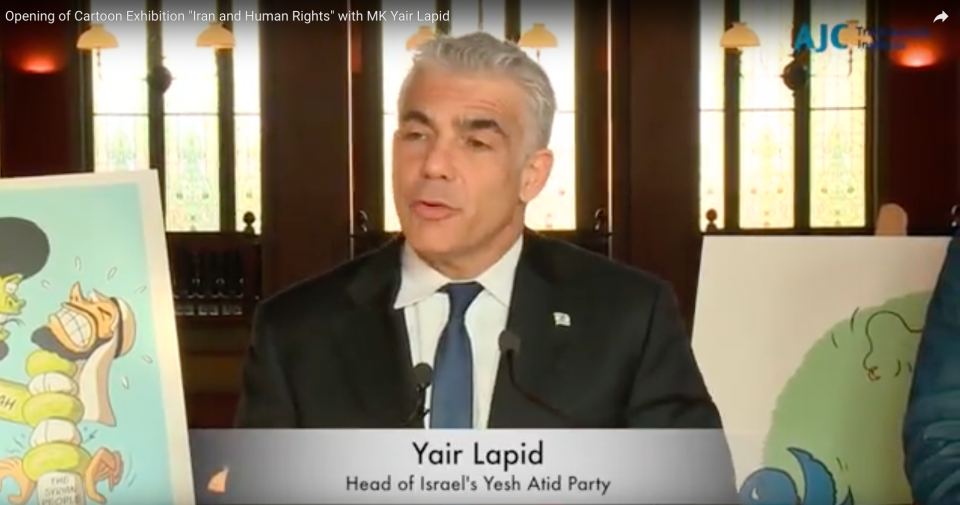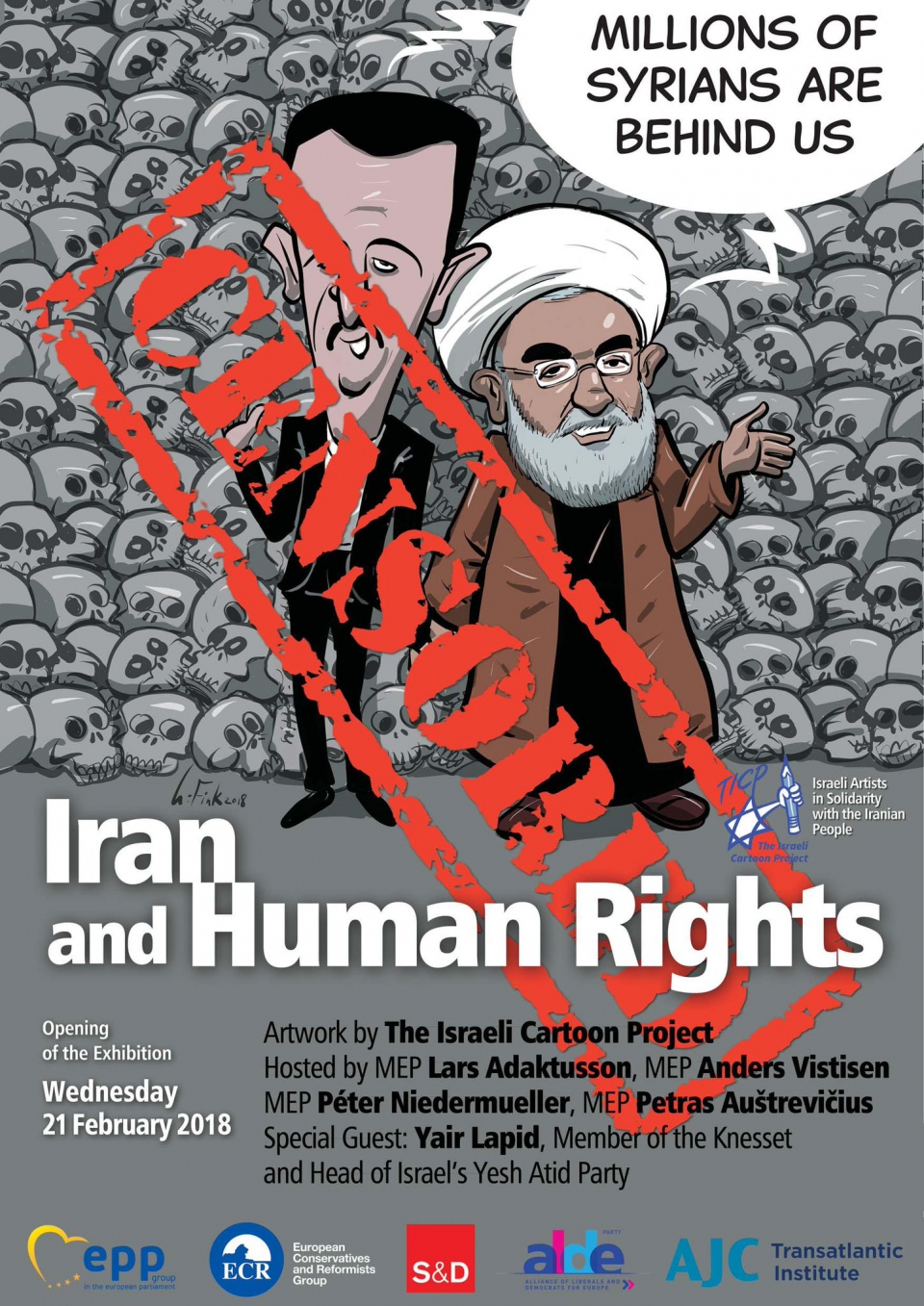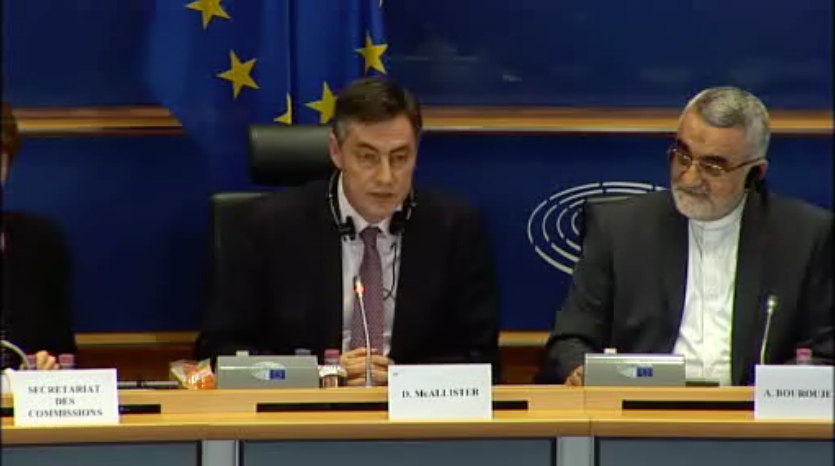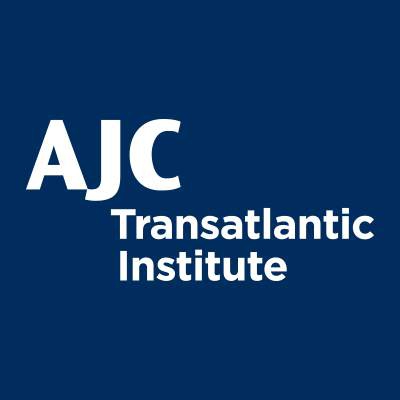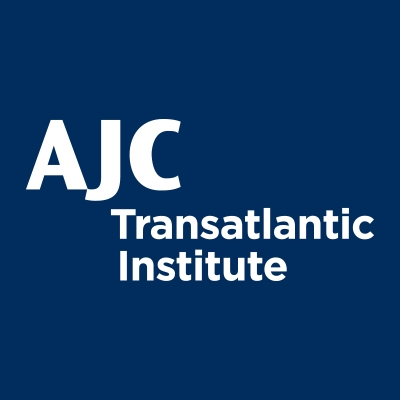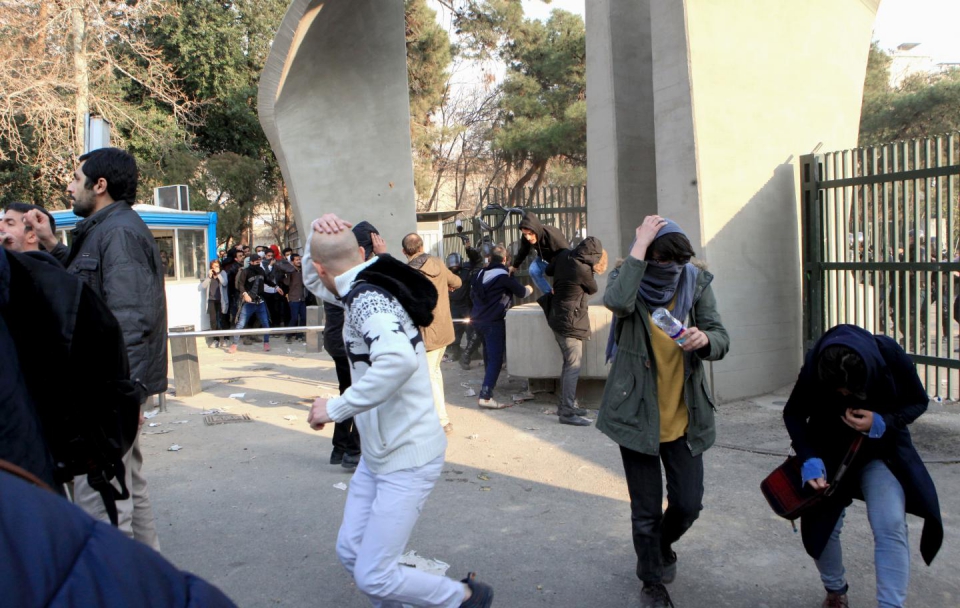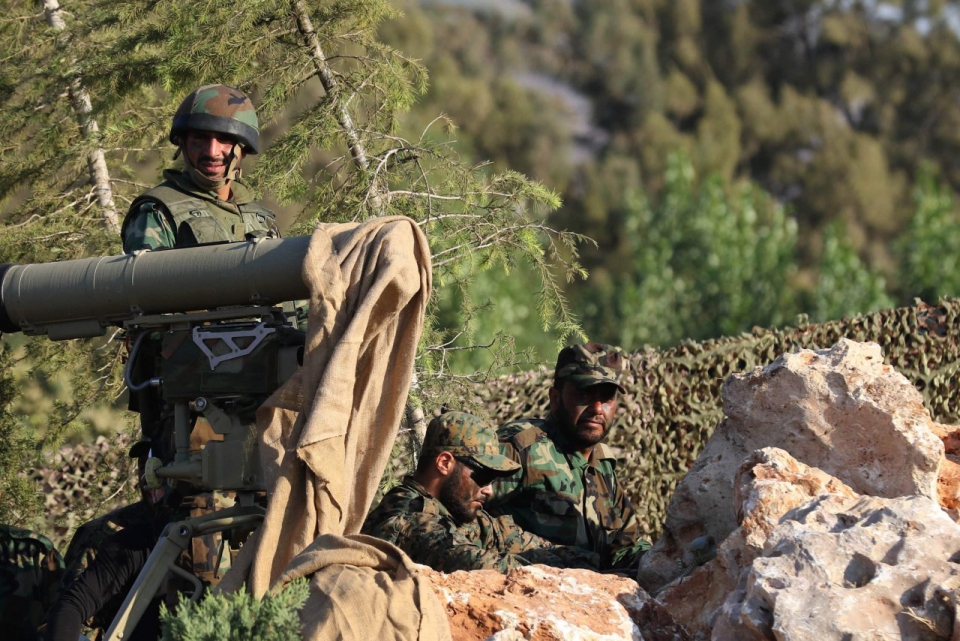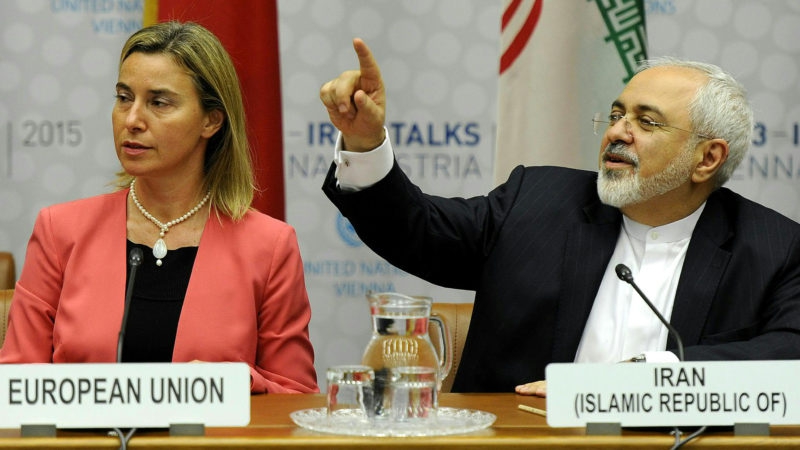Analysis
Remarks: House of Commons Hearing (UK): ‘Iran and Europe’s Containment Illusion’
Full Transcript:
John Woodcock MP: "As for the main business of the meeting, I will now introduce Daniel Schwammenthal, who will from now on be referred to as Daniel as I am not going to attempt that again! Daniel is the Director of the AJC Transatlantic Institute in Brussels. He worked as an editorial page writer and OP editor for the Wall Street Journal covering European Union politics, the Arab-Israeli conflict, something of which I am very interesting in as the vice chair of Labour Friends of Israel, Iran, radical Islam and Terrorism.
Daniel’s CV goes on but I hope that this very short introduction has awakened your appetite. Without any further due, I will introduce Daniel. Daniel is going to speak for about 20 minutes and then there will be a Q&A for about forty minutes. I think Joshua [Goodman – TAI’s Communications Director] will be coming in during the Q&A as well at the appropriate moment. So, Daniel, the floor is yours."
Daniel Schwammenthal: "Thank you very much for your very kind introduction. It is a great honour and privilege for me to be able to speak to you this evening. Maybe a short and brief statement before I start with the actual presentation. I will reference some of the sources that I have used in my presentation but not everything as it would be too tedious. So if anybody is interested in the full presentation and all the source materials and research studies I have used, I am more than happy to forward it to you by email or through the Henry Jackson Society. Thank you.
Next week, the P5 +1, the five permanent members of the UN Security Council in Germany will have their second round of talks with Iran about that country’s nuclear weapons programme. The resumption of negotiations more than a year after the last attempt at dialogue failed, has rekindled hopes that we may yet be able to resolve the Iranian nuclear threat peacefully. But as Europe’s negotiators are getting ready for May 23 in Baghdad, let’s hope they’ll remember the lessons from their past engagement with Tehran.
When Britain, France, and Germany led the negotiations in the initial phase between 2003 and 2006, they not only failed to stop Iran’s nuclear programme, but they could not even delay it. Much more importantly and worryingly, their efforts actually played into the hands of the regime. The three E.U. governments of the time insisted on continuing negotiations instead of imposing sanctions even though the regime itself publically announced that it was using the talks simply as a cover to buy more time for the nuclear programme.
For example, in an interview that aired on Iranian Channel 2 on august 4, 2005, the chief Iranian Nuclear Negotiator, Hosein Musavian said: “Thanks to our dealings with Europe, even when we got a 50-day ultimatum, we managed to continue the work for two years. This way we completed [the uranium conversion facility in] Esfahan. This way we carried out the work to complete [the uranium enrichment facility in] Natanz.” Valuable time was lost to exert real pressure on Iran.
After nearly a decade of fruitless dialogue, Iran must not once again be allowed to exploit the willingness of the West to engage, particularly since time is not on our side. Based on IAEA data, the Wisconsin project on Nuclear Arms Control, a non-profit, non-partisan organization set up in coordination of the University of Wisconsin, estimates that by April 2012 Iran already had enough low enriched uranium – that means enriched to 3.5% – to fuel about 5 nuclear weapons. They also concluded that Iran has about 100 kg of higher enriched uranium – that is about 20%. And you need about 140 kg to produce enough weapons of grade material for one bomb. And even though there is no conceivable civilian need for 20% enriched uranium, Iran announced that it will increase production and if it does so it may soon be able to produce 15 kg of 20% enriched uranium per month.
Now since the weapons grade uranium requires enrichment to 90%, there is a common misconception that Iran who has only achieved 3.5% may actually be far away from achieving its goal. But as Olli Heinonen, the former deputy head of the IAEA, has repeatedly pointed out, 3.5% enrichment is already 70% of the enrichment effort you need to get to weapons grade. And if you enrich to 20%, that’s already 90% of the work. Thus they are very close already. According to the Wisconsin Institute, Iran will probably need 3 to 12 months to produce a nuclear weapon using its 3.5% stock pile or produce enough weapons grade material for one weapon. And if it succeeds in producing enough 20% enriched uranium, it could use that material and turn this around in about 6 weeks.
We also know that Iran has worked on all of the other elements required for the production of nuclear weapons; enrichment is not the only issue here. The IAEA’s report from last November reveals that Iran has conducted experiments on nuclear triggers, created computer models of nuclear explosions and completed advanced research on warheads for missiles.
And yet there are still voices playing down the Iranian sweat. Some cite the Fatwa by supreme leader Khomeini, allegedly forbidding the production and use of nuclear weapons. Now, one would think that a regime that has in the course of 30 years killed several tens of thousands of its own people, that stones women, hangs homosexuals, brutally suppressed the opposition movement, and as a matter of fact has repeatedly been caught lying about its nuclear programme, would be met with a little bit more scepticism even if the leader responsible for all of these crimes uses religious terms for his reassuring statements. After all, Ayatollah Khomeini himself pointed out that Fatwas are not exactly written in stone: “the government can unilaterally abrogate any religious agreement made by it with the people if it believes that the agreement is against the interests of the country and Islam”, he wrote in 1987. “The government can prevent any Islamic law — whether related to rituals or not –from being implemented if it sees its implementation as harmful to the interest of Islam”.
Mehdi Khalaji – he is one of the foremost experts on the Iranian doctrine of Shiite Islam, he studied at the seminaries of Qom, the traditional centre of Iran’s clergy world where Khomeini and Khamenei had studied – warned about taking Khomeini’s fatwa at face value in an analysis he has written. In just September 2011, he concludes that: “should the need of the Islamic republic or the Muslim umma change, requiring the use of nuclear weapon, the Supreme Leader could just as well alter his position in response. This means that ultimately, the Islamic Republic is unconstrained –even by religious doctrine — as it moves towards the possible production and storing of nuclear weapons.” So let’s not be more Shiite than the Ayatollah on the issue of these sorts of fatwas.
President Obama has clearly spelled out that containment is not, nor ever will be, a policy option. We have yet to hear all of the other European leaders speak with such clarity. At the same time as some commentators play down the possibility of Iran really desiring nuclear weapons, others presented an Iranian bomb almost as a fait accompli, and encourage us to simply accept it, live with it, if not learn to love it. Former German diplomat, Wolfgang Ischinger, for example, the host of the annual Munich Security Conference, and a big voice in German’s foreign policy debate, believes the danger can be contained. If it was possible to deter the Soviet Union successfully then that will probably be possible with Iran as well, Mr. Ischinger said just a few weeks ago.
But the Cold War analogy fails on several grounds, and simply accepting a nuclear Iran would be failure dressed up as policy. The fact that we survived the previous nuclear standoff is not evidence that it was predetermined to succeed. On more than one occasion during the Cold War struggle with Communism the threat of mutual assured destruction did not prevent the two sides from stepping right to the break, most famously during the Cuban missile crisis. So any nostalgia for another round of decades of nuclear standoff, this time against a much less predictable republic of Iran seems utterly misplaced.
As dangerous as it was to play MAD with the Soviet Union, it would be far more dangerous to try and replay it with Iran. This is not just because mutually assured destruction might be more of an incentive than deterrence for some members of the regime. To cite Bernard Lewis, the eminent British scholar on the Middle East, “we know already that they” – meaning the mullahs – “do not give a damn about killing their own people in great numbers. We have seen it again and again. In the final scenario, and this applies all the more strongly if they kill large numbers of their own people, they are doing them a favour. They are giving them a quick free pass to heaven and all its delights.”
The usual counterargument is that the power in Iran is supposedly held by more rational people. But can we really be sure of that given Iran’s complex power structure and the West’s lack of good intelligence about the inner workings and thinking of Iran’s leadership? And who counts as a moderate anyway? Former Iranian President Hashemi Rafsanjani for example, usually considered such a moderate, suggested already back in 2001 that his country would not be deterred by mutually assured destruction: “application of an atomic bomb would not leave anything in Israel, but the same thing would just produce damages in the Muslim world”.
But there is an even more fundamental problem with the Cold War analogy. Despite the US-Soviet rivalry, the two antagonists shared clear channels of communication; we all remember the red telephone and an established relative degree of trust: both central ingredients for deterrence to work. Nothing of this sort exists between US and Israel on one side and Iran on the other. They don’t even have diplomatic representation in each country. The absence of such direct contact raises the chance of either side misinterpreting its opponent’s intentions. In addition, Iran would like second strike capability and Israel is too small to support a nuclear attack. So the quite rational temptation, one could argue, for either side to launch a pre-emptive attack would be far greater than that phase by the US and the Soviet Union during the Cold War.
Even if the Iranians accepted the basic logic of deterrence, the risk of nuclear war by misinterpretation, technical error, or miscalculation could prove unmanageable. The idea of trying to contain Iran also overlooks the fact that Tehran’s acquisition of the bomb would kill the non-proliferation treaty and trigger a nuclear arms’ race in the region. Countries such as Saudi Arabia and Turkey are unlikely to rely on the Western promises to protect them from a nuclear Iran after a same West failed to prevent a nuclear Iran in the first place.
Unlike during the Cold War when there were only two main nuclear players, we would be facing a very fragile standoff among several unstable actors, greatly enhancing the risks of an accidental nuclear war. With so many actors, any of the regions with numerous unresolved conflicts would suddenly become the trigger for a nuclear exchange.
Finally we must not look past Iran as the world’s chief sponsor of terrorism. Hezbollah, for example, with its international net of supporters is fully integrated in the command structure of Iran’s Revolutionary Guards. The Iranian regime could simply circumvent the logic of mutually assured destruction by passing on a weapon to terrorists, thus escaping retaliation all together. If a bomb went off in a Western city, it could be months before it could be identified as possibly being Iranian and even then according to a November 2011 analysis in the New York Times, citing several US officials: “confidence in the conclusion might be too low for any president to order retaliation. It is hard to imagine any Western leader ordering a nuclear strike and thus the death of untold numbers of Iranian civilians on the basis of inconclusive evidence months after the initial attack. Tehran would be quite rational to count on Western scruples in such a case.”
Let’s also contemplate the large meaning of containment. Even if nuclear war could be avoided, Iran would still be able to leverage the mere possession of the bomb to advance its revolutionary agenda. Iran has for years armed and trained insurgence in Afghanistan and Iraq, causing the deaths of numerous allied soldiers including British soldiers. Tehran was also directly involved in terrorist attacks around the world including in Saudi Arabia and Argentina. If this is what a conventional Iran is doing, imagine what an Iran would do if it had nuclear weapons. It would be untouchable.
Using threats and proxies, Tehran could try and bring the Gulf region and Iraq under its control, where many states including Saudi Arabia have sizable Shiite minorities. The effects on global oil prices would be disastrous. It could also use its nuclear umbrella to embolden Hezbollah and Hamas even more, to escalate the military confrontation with Israel, thus complicating the Israeli-Palestinian conflict, making it perhaps impossible to solve.
If the negotiations move forward, it is therefore crucial to keep up the pressure. The goal is not to make life harder for ordinary Iranians, but to stop the Iranian nuclear weapons programme. In that context, it is quite worrying that just last week, Britain, which led, together with France, the European campaign against a nuclear Iran, said that it was seeking to delay the EU ban on insuring shipments of Iranian oil. The timing of these requests, coming just a week before the next round of talks could not be worse. Such windowing will not help convince Iranians that this time the Europeans mean business. And judging from news reports, it seems that Europeans and Americans have already lowered their standards of what would constitute an acceptable deal. According to this report, US and European negotiators would reportedly accept a deal that would allow Iran to enrich uranium below 20% if it ships abroad its stock pile of 20% enriched uranium, close the underground for the enrichment facility, and allow IAEA inspectors access to suspected nuclear science. No doubt such deal, if faithfully implemented, would be preferable to an Iran that is continuing its nuclear programme without limitations.
But it would not stop Iran’s progress. Instead it would simply delay elements of the programme and prevent Tehran from burying it beyond the reach of airstrikes. But particularly troubling is that Iran would be able to keep its large stock pile of low-enriched uranium, and could produce even more of it, only this time, with de facto international approval. Recall that enrichment to 3.5% is 70% of the way. That’s a significant political and, in the end, military victory for the regime. In addition, Iran would probably be free to improve on its existing centrifuges and ballistic missiles, the delivery system for nuclear arms. Such a deal would simply put too much effort, too much emphasis on enrichment which is not the only part of Tehran’s nuclear programme.
Iran has, as mentioned, pursued every major area of nuclear weapons development, including triggers and fitting a nuclear warhead on ballistic missiles. Partly controlling Iran’s enrichment activities will not hold Iran’s abilities to move forward in all of those other areas. At the best it would presumably lift or ease sanctions – Tehran would be given additional funds and breathing space to prove its nuclear research and capabilities. Tehran would have to use the letter of international pressure to get all other elements of its nuclear programmeme in place, then break out, and develop a nuclear weapon in a relatively short time. Remember that with Iranian negotiators, it inevitably means compromising with our security. The P5+1 should thus be guided by nothing less than their own previous decision. UN Security Council Resolution 1929 from June 2010, which Britain, France, the US, China, Russia, and Germany all supported, demanded Iran’s suspension of all of its enrichment uranium activities, not just those above 3.5%, and requires a full cessation and disclosure of its military nuclear programmeme. If this was the right way forward in 2010, it certainly is the right way forward today when Iran has made even more progress. Thank you so much for allowing me to present the dangers caused by Iran’s nuclear programme and how Europe could help to prevent it. We are more than happy to take your questions or to respond to comments that you may have.
Woodcock: Daniel, thank you very much for that. That was a fascinating perspective on this particularly troubling issue, but I think we will move straight onto questions. Can I ask to anyone who wishes to ask a question to give your name and say where you are from, and we will pass you over to either Daniel or Joshua. Joshua is also available to answer the questions.
Q: [question undecipherable]
Daniel: This was reported in various media, including American media. Again, these are just leaks or reports. We do not know if this is actually something that has been contemplated, but it has been reported. I can easily find it for you, but it has been reported in mainstream newspapers. We do not know if it is true, but if it is true, as I said, it would be troubling.
Woodcock: Can I just remind everyone to give their name and say where they are from before they ask a question. Thank you.
Question: Mark Fitzpatrick from the International Institute of Strategic Studies based here in London.
Actually I have a comment that follows the previous question. The deal that is being decided on is not, to my understanding, anybody’s idea of final deal. This is a confidence building measure as a way to alleviate the immediate pressure, immediate possibility that Iran could have a jump off to [undecipherable]. So if they were to start by shipping their 20% stock pile, it would provide some breathing space and some confidence building measure which could maybe then contribute to the real solution that you have suggested is ideal that would be suspending all enrichment . [Phrase undecipherable] And I suspect that they will try and find a solution that would allow some for some enrichment capabilities.
I guess if I had to put a question to this, it would be whether you would agree that it is better to start somewhere, because holding to a position that does not bring any results is an idealistic position but wouldn’t it be better to get results.
Daniel: As I said, it certainly is preferable over Iran simply continuing without any limitations which is the danger that I fear. First of all, it is a question of strategy. I was very surprised to read anything about this, because if this is your negotiating position, you do not want to telegraph it to the Iranians. If you are seeking, even if it is only an interim step, by revealing your cards, the chances of you even getting the interim position, I would argue are much lower if Iran already sees that we are ready to compromise. And on the Security Council, it calls for suspension but you know until Iran completely opens up its nuclear weapons programme and removes any doubts about its civilian peoples intention, so …
Mark Fitzpatrick: I believe that it is in the policies that they have put forward, but I do not think that it is in the resolution.
Daniel: The resolution demands also for an opening of all outstanding questions, or something along those lines.
I would agree with you that a compromise would be better, but then again the chances of us getting even that by revealing the cards are fairly limited. It is at the very least a very bad negotiating tactic.
Question: [name undecipherable] Professor of History and Politics
My question is whether or not there are any analogies between the Iranian situation and the North Korean one because they are also an awkward country to embark with.
I would add to that a general question on the particular role that China may play in this.
My final point is that given the history that both the British and the Americans have had in Iraq and Afghanistan, would you say that there is some reluctance to become even more involved in that region of the world?
Daniel: The parallels to North Korea are certainly in that sense apparent. In both cases, the international community planned on negotiations and good gestures that were repeatedly duped by the North Korean regime, and I see a certain parallel pattern here. And even at the time, back when I was a journalist, I noticed those quotes claiming: we are really taking the Europeans on a ride; they are giving us more time… I’m pretty sure Jack Straw may have read those quotes as well which is why we continued with the talks. There is a parallel, and because the problem is so difficult to solve we pretend to have a solution, but really the negotiations become an end in themselves rather than a means to an end.
Regarding the China question, we know that China and Russia have been extremely difficult about agreeing on a meaningful sanction which is why in the end, very late in the game, Europe finally stepped up and agreed on sanctions that went way beyond the UN sanctions. But as I mentioned with the UN Resolution, even China agreed to these very strict demands.
Joshua: Can I add one thing on China? According to the reports made by people who were involved in the last round of negotiations, when it came, there was big discussion and then movements for bilateral negotiations, and there were only two that took place at the Iranians request, one with Catherine Ashton and one with China, clearly suggesting that Iran sees China as probably their advocate in finding a resolution. The connection simply through the energy purchases is very evident. China does not have very good opinion spills, and it owes a lot of money to Iran. Last summer China owed over a hundred million or even more than that. They buy a lot and they don’t really like to really follow up. From their interest they are watching the oil sanctions and they obviously see a lot of advantages for them right now. On the one hand China could play a big role because it has all of the instruments to do so, but on the other hand the motivations are very suspect.
Daniel: On your last question, would mind repeating it?
Question: Simply given that the Americans have more than their hands full in Iraq and Afghanistan, are they not somewhat reluctant to face up to what we are talking about?
Daniel: Well they are in Iraq and in Afghanistan, but if you are referring to potential military involvement than no doubt, it is, in respect to any conflict that they might be engaged with, it would be a… They are trying to find the right policy to avoid it at all cost. They certainly want to exhaust all other means first.
Joshua: But that being said, President Obama has made it very clear in a number of statements that no option has been put off the table and that the nuclear weapon in Iran’s hand is unacceptable. So if we take him by his word, despite all of the factors you mentioned, it seems to still be on the top list.
Woodock: And that position was reaffirmed by the British parliament in February this year in the House of Commons in a vote that I participated in.
Question: Jonathan Paris.
Daniel, I like the way you mentioned that some think it was too early and it was not a real decision that culminated in the Gulf in Iran, while some think that it is already too late. I wonder where you stand now, what you think. Is it too late? Too early? The path from too early to too late could be as fast as converting 20% uranium to 99%, that is my analogy. That concerns me because if you go from too early to too late, then you are going to hear a chorus against the bombing option, against the military option because it is too late. They already have the bomb or bombs. So I would like you to walk me through how you deal with this Iranian situation when it seems like there is going to be one screw turn over away from having a bomb under any scenario I see. Or am I simply too pessimistic?
Daniel: We know that Iran has accumulated incredible know-how and knowledge that no military intervention could simply eradicate that is for sure. We also know that they have numerous facilities somewhere underground, partly protected from airstrikes. But it seems to be that the military consensus is that particularly a strike carried out by the US which would have the capacity to do actually several rounds over an extended period of time would be able to at least buy us several years. I am not advocating this but am simply presenting the general consensus that exists. It appears that given the great military capabilities, especially when compared to Israel that the US would have more time to act. How much more time exactly? This is the sort of information that only a few are privileged to, but we are definitely getting very close to that point. There have been discussions, reports in the Israeli media that a strike would have to be carried out within a year for Israel to still be able to carry out. This is a very dangerous situation which is why I am so frustrated by these sorts of leaks and by the British position undermining the international community’s position as we are going into these talks. Because no doubt the credible threat of military intervention is certainly also concentrated in the Iranian minds. I am completely sure that it played an important role for them to agree to even come to the table. There is a lot of leverage that the West has. There are sanctions; more sanctions are lined up for this summer so I wish they would play the cards a little bit better.
Question: [name undecipherable] No particular organization
I found your talk absolutely fascinating. But I have to say that negotiating with Iran in general is a bit like walking up a down escalator. It is clear that Iran is unstable. It is clear that they don’t tell the truth. My big worry about Europe in general is that there is a lot of complacency and I think that the fact that so many of the sanctions that actually bite have taken so long to be put in operations and I think that there is an inevitability that Iran will continue to develop nuclear weapon, and then we will come to a position of very difficult containment. In general terms, my view is that the only two states that are genuine when they say that they cannot tolerate Iran with nuclear weapons are Israel and the United States and I think that whatever happens that we can ever change this.
Daniel: I am the most worried! Again the history of European negotiations with Iran is not very good as I tried to briefly summarize; it is a very worrying history. Nevertheless they have stepped up to the plate now. They have passed some serious sanctions, and again, in 2-3 months we will see the most important one kicking in in July: the ban on all sales. On all accounts, we keep on hearing from various European governments that this time “we really get it.” I think there is still a little bit more steel in them on this issue. In the end, for obvious reasons, the United States and Israel will play a bigger role in this perhaps.
But again, as I have tried to outline, the dangers for Europe’s security are in my view, particularly if one believes the Iranians are rational players and not suicidal then in my view Europe has much more to worry about, because in my view, trying to sneak in a weapon into borderless Europe will be so much easier than to do the same in Israel. And therefore I am a little astonished by how little attention the public and the media pay to the threat that a potential armed Iran plays to their security.
It has not been properly communicated through the media and public awareness is not really at that level and it is for instance in the United States.
Question: Davis Lewin, Henry Jackson Society
Can I ask you two unrelated questions? First, continuing on the theme of Europe, I just wonder since you are here from Brussels and you have your fingers on the pulse of Europe, talk to us a little bit about policy detail, namely, we’ve seen the immergence of Catherine Ashton, much criticized as not having contributed particularly much since her start, while others think that she’s pushed to the front and she is in charge. What do you make of that? What’s the story there behind the scenes?
The second question is if we can assemble just a couple of bits of the argument that I know you essentially already made. I would like to argue that it is abundantly clear that the American president will do anything he can to avoid a conflict before the election. He has been working very hard to do so and the Iranians know that.
But given that we are at a stage of negotiations where we could manage to pull it off and escape on the curve of the pressure, and what is happening with the British being potentially willing to take the 1st of July sanctions back a step, we are again in this dynamic where the Iranians might just be able to get away with it without the pressure of having to compromise.
What is the minimum acceptable level along the lines of what Mark Fitzpatrick said, that it would be better than nothing? What does it have to look like when they come out of Baghdad now, when they have the technical discussions about how the measures are going to be implemented? What is the minimal that has to come out so that we can say: “okay we can move on from here”. And incidentally, the voices that say that there is a possibility of military action by Israel later this year have not gone any quieter. So I still think that we are operating under that assumption. Give us the minimum red lines for this stage in the negotiations.
Daniel: Right, on the selection of Catherine Ashton. My personal view is that it was quite a clever move to have a negotiator who has actually no negotiating making power as she can always say when under too much pressure that she can’t really give an answer, go back and then come back and blame it on the bad guys. So it not a bad strategy to have her as a sort of figure head of the negotiations. She comes with very precise instructions: this is it, this is what I can offer you and there is no use in you trying to pressure me as I am just the messenger.
Joshua: There is a good example of this by [name undecipherable] of Yahoo and one of the Financial Times bloggers report the same story each claiming it as their own, which we can leave for now, but apparently in the bilateral meeting Catherine Ashton was asked over a hundred times – this may be an exaggeration – to ease the oil sanctions. Her response, not because of her strong will per say, but because she had to, was: “no”. There was nothing else she could say. She is the voice of European policy. If you want to change policy you have to put pressure on Germany so Daniel is correct. I always think you are correct!
The one thing I can say for Catherine Ashton personally, because I think that especially in the UK, people attack her credentials, certainly in Brussels.
Davis: I wasn’t attacking her credentials
Joshua: No, No! I was not looking at you. But I’ve been told that she has some excellent skills in leading negotiations, she is a good mediator and because she is there inside not as a representation of a specific country but more as a sort of super imposed member of the group, she can play that role.
Daniel: In regards to your question on the red lines, as I said, it really depends on if it really is an interim agreement, or is that an agreement that in the end will stand. If it is indeed true that this is an interim agreement confidence building agreement would probably work but we would have to follow that fairly quickly with a real opening of Iran’s nuclear programme and also put a stop on somehow safeguarding at least…
Once you allow Iran the right to enrich basically to 3.5% you cannot take that back anymore, but there should be some sort of safeguards, controls, cameras involved to ensure that it is not enriched further and used for whatever purposes they claim they want to use it. So in the end it all depends on if it is an interim deal or not and my fear is that it would probably be the final deal and that is why I am so concerned.
Joshua: I mean I think that when you are putting the calculus together you must remember that the IAEA is the one responsible of ensuring that Iran is in compliance with the non-proliferation treaty. So you have to look at the standards they need to ensure that Iran has a purely civilian nuclear programme, and if Iran allows any access to this monitoring, if they allow in judging it then that is certainly one condition that we have to keep in mind because that is their job. Without that, what is the purpose of the IAEA?
Daniel: One thing I did not mention in my presentation was an article that was published by a German daily newspaper concerning the mujahedeen, an opposition group that some of you may be familiar with. When I think about the group as such it was crucial in exposing Iran’s secret nuclear programme in 2002 so they seem to have very good sources. They have provided astonishing material that has not officially been confirmed yet, but they provided the organization with a charge that is showing that Iran is not just working on enrichment but has 6 other programmes dealing with every single element of the nuclear weapons programme. And at full speed, it has even accelerated its programme and it provided names of key Iranian regime officials that are providing now. This will all have to be checked by analysts but in terms of open source material this could be a gold mine.
Question: Is this a smoking gun?
I think that if it checks out, if it can be confirmed it can come extremely close to a smoking gun. But what the IAEA said in its November 2010 report was already pretty much a smoking gun. They had evidence that Iran had worked on all of these programmes and they had suspicions that they were still working on them, but would not confirm it. Now this report would confirm that they are working on a fully fledged military programme. And remember that, I don’t know how closely you’ve been following this, but there was a U.S intelligence report in 2007 that claimed that Iran after 2003 had stopped its weapons programme. It still continued enriching the uranium but it discontinued working on nuclear warheads, nuclear weapons, et cetera. Now this was always a very controversial report, many people did not agree with it, many people also disagreed with the separation of artificial nuclear programme but let there be a side. What the mujahedeen claim is that even if one accepts the artificial separation, they never stopped after 2003, that they just compartmentalized it and spread it out not so much under one big programme but under small 6 programmes sort of like a celebration that is more difficult to detect by intelligence services.
Question: I just wanted to talk a little bit about the possibility of a nuclear arms race particularly in regards to Saudi Arabia and Turkey and the extent to which you view this maybe as a proxy war with Syria.
Daniel: Well Saudi Arabia definitely is extremely worried about Iran gaining nuclear capabilities, probably even more so than Israel. You may have read about those Wikileaks and there was one Saudi ambassador who I believe was talking to the general [UNDECIPHERABLE] at the time, urged him to cut off the head of the snake, the snake being Iran. That was by the way the same ambassador that the Iranians tried to assassinate in a Washington restaurant. So again Iran is focusing its rhetoric on Israel but as we all know there is a schism in Islam between Shiites and Sunnis and Saudi Arabia has I think a significant Shiite community of 20-30%.
Joshua: More importantly is where it is located geographically. It is in the Gulf, in the oil fields, in the oil production process.
Daniel: They are a minority that has legitimately complained about the way that they are being treated. Also let’s not forget that Saudi Arabia is a holy land of the Muslims. It is not Israel; it is Mecca and Medina, so they have a lot to worry about. There is good reason to assume that Saudi Arabia has already started its own nuclear programme and will definitely try to gain its own nuclear weapon. As I said it will trigger a nuclear arms race in the region. The same will probably hold true for Turkey. As to the proxy war in Syria, you are right that Syria is an ally, the only remaining major ally in the region except for Hezbollah in southern Lebanon, so Iran is sending Special Forces helping to kill civilians and the opposition, whereas Saudi Arabia is funding and according to some reports even arming the opposition. So there is certainly great interest in Syria. If Syria falls it would isolate Iran, and would certainly solve some of the problems we have.
Joshua: You pointed to the nuclear programme; there was a report in 2009, if I am not mistaken, stating that more than 12 regional countries were expanding or at least exploring civilian nuclear programmes, so the emphasis should not only be limited to Turkey and Saudi Arabia. There is also in terms of regional interest here the oil sanction we discussed today. Europe has already reduced its consumption of Iranian oil by about 50%, and now in the global market the Iranian consumption is down apparently by a quarter so the replacing seems to be coming not just from Saudi Arabia but also from regional partners including Libya and Iraq and, not in the region but Nigeria as well.
Woodcock: Any further questions?
Question: Just a quick question: is there anyone who could get this whole thing on the newspaper, for example, the Daily Mail that a lot of people read!
Also, we talked about nuclear weapons but, I believe that Iran also has leading biology and chemistry working on biological and chemical weapons. I was wondering if we could have a few words on that.
Daniel: Not only Iran but also Syria. I think Syria has one of the largest chemical weapons depots in the world. But Iran, despite its precession of other weapons of mass destruction, is pursuing nuclear weapons because they are simply much more effective than chemical or biological weapons. They would not have the same devastative effect so the nuclear weapons are a much bigger security headache for everybody. But it is certainly not a very securing thought to know that they already possess other weapons of mass destruction.
As for the media, you know I used to be a journalist. I still occasionally write for the Wall Street Journal. If you have anybody in the British press who would let me write an article about the situation in Iran, I would be more than happy to oblige!
Woodcock: Thank you very much. I think we’ll possibly start winding up now because the bell will go off at any second which will require my attendance at one of the voting lobbies downstairs.
If people will remember back to a vote that took place back in February in the House of Commons, a motion was made by a Conservative MP. His main objective in moving the motion was to see that the British government should not use military action against Iran which conversely, people like me would argue that we should keep all options on the table to deal with this real and eminent threat and generally when I come out from a walk with Daniel and Joshua in terms of what was said this evening. I have jotted a number of these points down, and plan on using them in the future and claim that I am as intellectually capable as Daniel, as any good politician would.
I would like to thank everyone who has come this evening. I would like to thank everyone who asked questions at this evening ‘s event and most importantly I would like to thank Daniel and Joshua for coming and sharing their thoughts with us and can we thank them in a normal way ladies and gentlemen.
